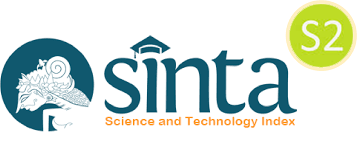Facing the Industrial Revolution 4.0: Taiwanese and Indonesian Perspective
DOI:
https://doi.org/10.18196/iclr.1209Keywords:
Challenges and Opportunities, Industry 4.0, National Law, Republic of China, Republic of IndonesiaAbstract
Industrial Revolution 4.0 offers both challenges and opportunities for all countries. Every country has to adopt best strategies to deal with its dynamic and complexity. This paper aims at discussing the legal policies adopted by Indonesia and Taiwan to face this industrial revolution. This research employs a descriptive- qualitative method with comparative approach. It is found that Industrial Rrevolution 4.0, also known as the intelligent industry, seeks to transform a company into an intelligent organization to achieve the best business results. Indonesia officially launched the road-map called “Making Indonesia 4.0” in 2018. In the same year, Indonesia has started to set up the main plain of the program for five focuses sectors ex: food and drink, textile and clothing, automotive, chemist and electronic, and additional ten cross priority sectors. While Taiwan proposed its own version of Industry 4.0 called “Productivity 4.0” in 2014. This includes the use of large quantity of robots and production lines, the automation of manufacturing procedures, the introduction of Industry 4.0 and Internet of Things (IoT) technology, and cloud computing for immediate data processing. It makes Industry 4.0 as the national policy for industrial transformation.
Downloads
Additional Files
Published
Issue
Section
License
By publishing with Indonesian Comparative Law Review, authors agree to the following terms:
1. Authors retain the copyright to their work and grant Indonesian Comparative Law Review the right of first publication, while also licensing the work under a Creative Commons Attribution License (CC BY 4.0). This license permits others to share the work, provided they acknowledge the author and the initial publication in this journal.
2. Authors may enter into separate agreements for non-exclusive distribution of the published version of their work, such as posting it to an institutional repository or including it in a book, with acknowledgement of its initial publication in this journal.
3. Authors are encouraged to share their work online, for example on institutional repositories or personal websites, both before and during the submission process. This practice can lead to productive exchanges and increased citation of published work.



